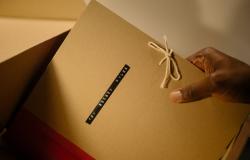Does Secret Intelligence Make for Better Policy? (Some Preliminary Thoughts)

Trusted secrets. Robert Schuett argues that intelligence agencies must be bold in their capabilities and humble in their role.
A few days ago, I was invited out to lunch to catch up on current geopolitical developments. There was plenty to discuss. All too much, alas.
The venue was a restaurant in central Vienna. As we sat down, I sort of joked that it was a fitting choice, since the place is one often frequented by people of my former caste. I then asked, half-serious, whether that was a deliberate gesture to make me feel at home.
My host laughed and tried to assure me it was just a coincidence.
With the ice thus broken, we eased into a casual conversation about today’s strategic challenges, ranging from Russia’s ever more horrendous attacks on the people of Ukraine to the Iran question, and, inevitably, the role of intelligence in all of this.
After lengthy, lunch-esque exchange on the current political, security, and business landscape, and as our thoughtful luncheon drew to a close, my host leaned back and asked with genuine curiosity: “Does secret intelligence actually lead to better policymaking?”
Not only because it happened to be the hottest day of the Viennese summer thus far, I gave a weary little shrug and, more sighing than speaking, said, “Well, one would certainly like to think so.”
My response was heartfelt, yet inadequate.
Therefore then, as we had already run out of time and were on the verge of leaving, I promised my lunch companion that I would provide a fuller answer soon. I shall do so here, publicly, though with the caveat that these are merely preliminary thoughts—not conclusive, and certainly not exhaustive.
To begin addressing the question, I find it useful to step back and ask what makes intelligence work possible in the first place. The answer, I think, is trust.
At the heart of any intelligence enterprise, whether domestic services or external agencies, lies trust. Trust within the services themselves. Trust between those who produce intelligence and those who consume it. Trust among the legislative, executive, and judicial branches of government. And there must also be trust from civil society that whatever intelligence agencies are doing, in particular secretly collecting information, is conducted in accordance with the rule of law.
Trust matters so immensely because intelligence services operate outside the bounds of normal transparency. Their work is secret by design, often intrusive, and sometimes legally or ethically ambiguous. Unlike other instruments of statecraft, intelligence cannot rely on public accountability in the usual sense. It therefore depends on institutional trust: among political leaders, between agencies, and from society at large.
If that trust erodes, and if there is a perception that intelligence is being misused, politicized, or disconnected from the law, then not only does the legitimacy of the services suffer, but the quality of policy decisions based on their work is also put at risk.
Put bluntly: why would any policymaker make use of raw intelligence or strategic assessments if the producer of that very material cannot be trusted? More positively, producers of intelligence and consumers of it have to establish a trusted relationship (ideally from the very start) where institutional trust plays a role, as does personal trust, as well as trust in tradecraft, reasoning, and style.
The challenge for all parties involved is that in politics and international relations, trust may be the second-most precious commodity there is. That power ranks as the one and only currency in political life—where it carries both material and ideal elements—hardly needs further elaboration. From Hans Kelsen we learn, from first to last, that we do not do democracy because we are peace-loving Kantian angels, but precisely because we aren’t.
To deal with everything from longstanding conflicts of interest to thorny disagreements about life and society, not to mention the occasional outbursts of individual and collective irrationality, what is required to keep the yearning for power within reasonable limits is a democratic system of government, rooted in constitutionalism or in the proceduralism of the rule of law.
So, where power is so very precious, and the daily acts of manipulating the balance of power in one’s favour, whether domestic or international, are so very central, it is obvious (and quite understandable) that the issue of trust comes right after, barely a split-second after, the value of power, especially under the strategic conditions of the security dilemma.
Which is another way of saying that to believe intelligence agencies are, so to speak, the default go-to institution for everything related to foreign and security policy—from information to analysis to advice—is naive. What is required is that trust be established, or earned, through a combination of boldness and humility.
Being bold refers to the real ability, based on intelligence capabilities, to provide policymakers with exclusive information, that is, data or assessments that are otherwise not available. And though I very much agree that intelligence agencies should capitalise on open-source information, or “open secrets,” I would argue that whatever is openly available can, at best, be used for context. The real substance lies in secret information, and it is on that front—only on that front—that real added value can be provided.
And then there is the thorny issue of politicisation. Once there is the slightest hint, or even suspicion, that intelligence products contain an ideological stance, or are written or communicated in a self-serving way, it becomes very difficult, if not impossible, to engage with policymakers in a meaningful conversation. As much as intelligence agencies should be bold in demonstrating their added value, both in operations and analysis, they must remain humble about their role in the policy-making process, or what sometimes becomes policy drama.
For that reason, I doubt whether it serves the purpose of an enlightened intelligence-policy relationship when there is too much transparency about how these agencies communicate with the general public. One might say that “the secret sharers” (whoever they are at a certain point in time) ought to remain more firmly on the secret side of the equation. Once an agency steps into the public limelight, it becomes very difficult not to get drawn into political argument or controversy.
Needless to say, the opposite practice, which is hiding these agencies away from democratic accountability and public scrutiny, is equally problematic. The powers are too great and too dangerous to be left to the spooks—civilian, police, or military—alone. Everyone makes mistakes.
It goes without saying, however, that policymakers carry a great responsibility in all of this as well. A relationship is, after all, a relationship. And it can only be as strong as the commitment all parties bring to building and maintaining trust.
That includes, first and foremost, a willingness to understand what intelligence agencies are, where they come from, how they work, and what ethical codes of conduct they follow. It also involves spending time with a country’s intelligence community and being as open-minded towards the spooks as the spooks are expected to be towards them. After all, though it may lack Netflix grandeur, spooks are loyal civil servants who have chosen their line of government work because they care deeply about their country’s security—nothing more, but not a little less.
To offer a preliminary conclusion, the answer, at least to me, is fairly straightforward. Once it is firmly established that intelligence agencies are not meddling, overtly or covertly, in political decision-making, and once policymakers recognise that, in the realm of foreign and security policy, they can capitalise on a combination of knowledge, situational awareness, and strategic experience that is rarely matched under one roof, then secret intelligence can and will, of course, lead to better policy-making.
Whether both sides in this often uneasy relationship are willing to see politics and international relations through the eyes of the other is, ultimately, a question of personal ethics, tempered by a great deal of political (democratic) realism in turbulent times. Which reminds me of a quip from the first Chancellor of West Germany, Konrad Adenauer, “der Alte” from the Rhineland: “Take people as they are; there are no other ones.” Very true.
Robert Schuett is co-founder and managing partner at STK Powerhouse, a global risk advisory firm. A former Defence civil servant, he also serves as Chairman of the Austrian Political Science Association and is a long-standing Honorary Fellow at Durham University.
Photo by cottonbro studio


